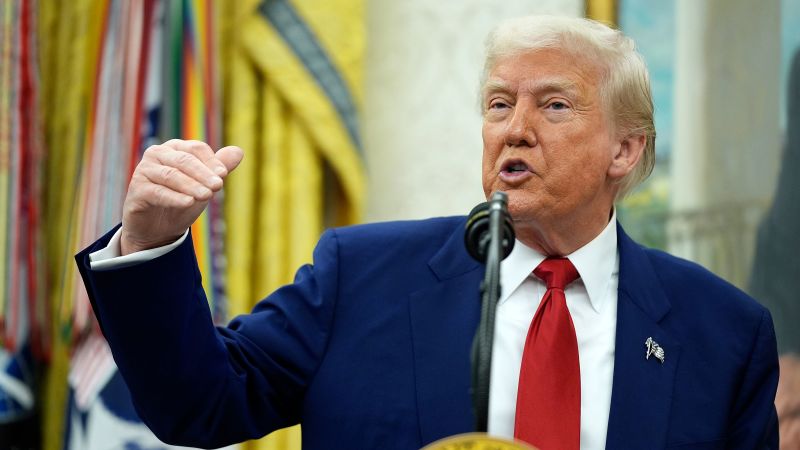The financial landscape of Wall Street has been characterized by significant volatility in recent months, heavily influenced by the inconsistent tariff policies of former President Donald Trump. Investors have experienced a turbulent ride as they tried to navigate through the unpredictable nature of Trump’s trade announcements. The situation has led to the emergence of a new trading philosophy among investors: TACO, which stands for “Trump Always Chickens Out.” This mindset suggests that rather than panicking during Trump’s tariff threats, traders should recognize a pattern where he tends to retreat from extreme measures, leading to subsequent market rallies.
The origins of this terminology can be traced back to a Financial Times commentator, Robert Armstrong, who coined the phrase. Trump himself was made aware of this term after a reporter questioned him about it during a press conference. The president’s response indicated a mixture of amusement and incredulity. He reflected on his recent decisions regarding tariff rates imposed on imported Chinese goods, which had fluctuated dramatically—from 145% at their peak to a lower rate, demonstrating a clear inconsistency in his trade policies.
Recently, Trump announced a plan to impose aggressive 50% tariffs on goods imported from the European Union, set to take effect on June 1. Predictably, this announcement sent shockwaves through the stock market, causing a decline as investors reacted to the potential economic implications. Just as quickly, however, Trump shifted his stance, suggesting he would delay this tariff due to encouraging discussions with EU officials. This backtracking is emblematic of Trump’s broader approach to trade negotiations, wherein he often raises tariffs as a tactical maneuver before walking back on those threats.
During a press meeting in the Oval Office, Trump defended his actions, framing them as strategic negotiation rather than weakness. He argued that setting high tariff rates creates room for negotiation, which could compel other countries to bend to his demands. For him, the art of negotiation includes taking a hardline approach initially and then lowering demands as talks progress. His remarks about “chickening out” came as a direct response to queries from the media, which he dismissed as overly aggressive.
Trump’s tumultuous relationship with tariffs is not limited to the EU or China. He has shown a pattern of making sweeping announcements regarding tariffs only to retract or pause them shortly thereafter. For example, in early April 2023, he declared broad tariffs on a variety of countries, which were scheduled to take effect the following week. However, within hours, he opted for a 90-day delay for all countries with the exception of China, illustrating a pattern of impulsive decision-making followed by reconsideration.
This inconsistency in policy has been troublesome for financial markets, particularly affecting the bond market, which reacted negatively to Trump’s toll changes. The volatility surrounding his trade strategies has caused substantial fluctuations in market performance, with the S&P 500 at one point nearing bear market territory. Investors, evidently uneasy, reacted by selling off U.S. debt, contributing to rising bond yields.
However, as is customary in this volatile trading environment, the narrative shifted yet again when Trump’s announcement of a pause in tariffs allowed the S&P 500 to rebound significantly, marking its most substantial increase since October 2008. This incident illustrates the degree to which investor sentiment is sensitive to Trump’s whims and the corresponding adjustments in market behavior that follow his unpredictable communications.
In sum, Wall Street’s interactions with Trump’s trade policies symbolize a complex web of fear, anticipation, and reaction. The term TACO encapsulates a broader strategy for investors caught in the cyclical pattern of Trump’s tariff threats—learning to ride the waves of uncertainty while anticipating eventual reversals. As the market continues to respond to the erratic nature of political decision-making, such paradigms will likely play a critical role in shaping investor behavior moving forward.



